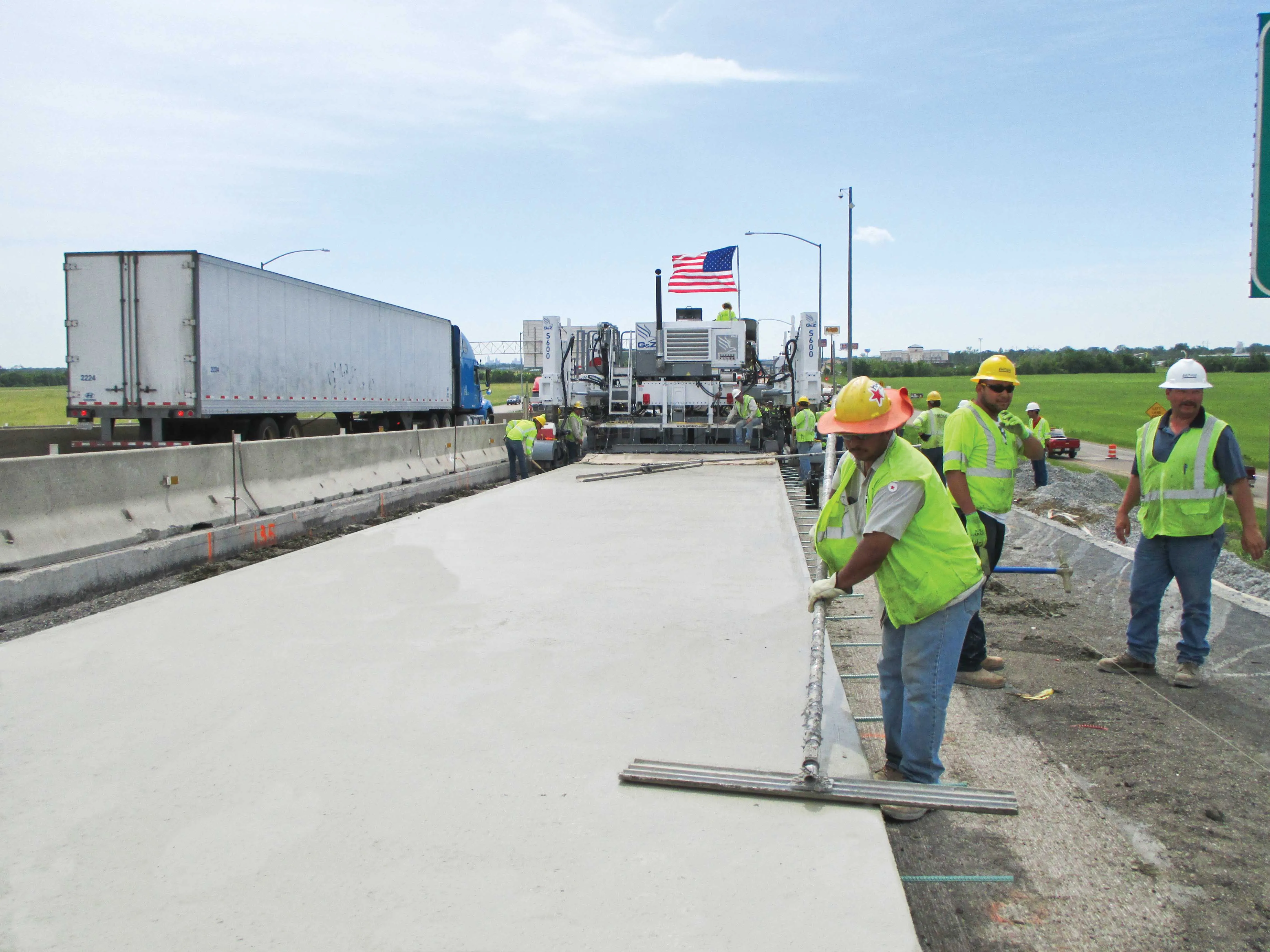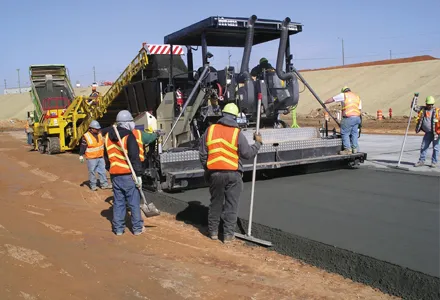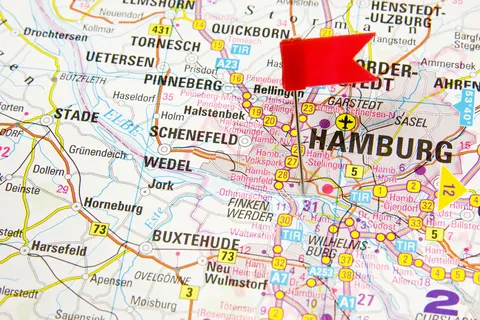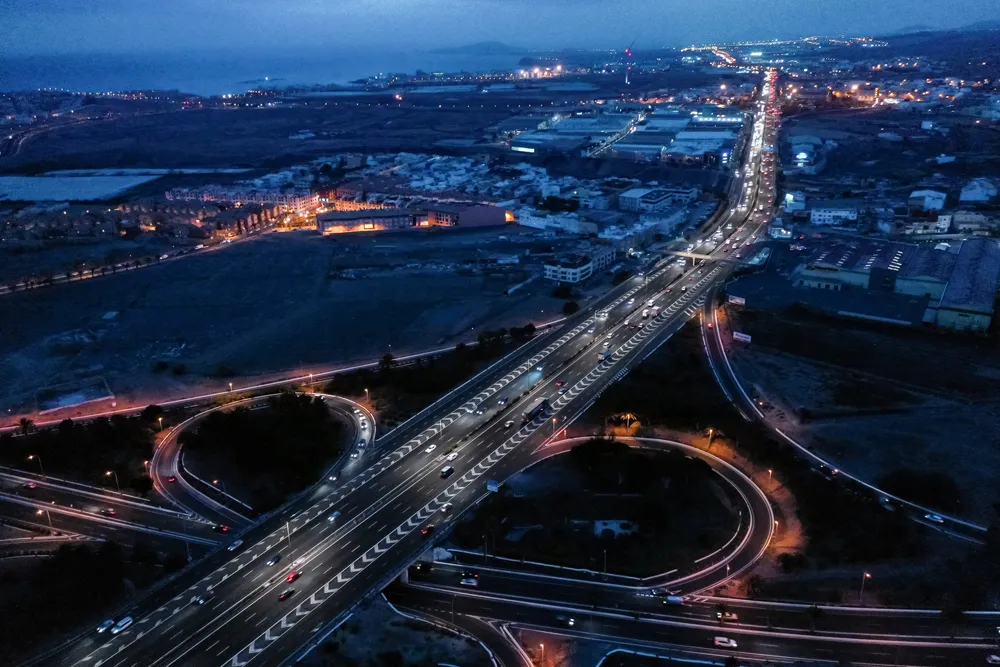Lindsay Transportation Solutions recently used the Intertraffic exhibition in Amsterdam to highlight a major deployment of its Road Zipper System in Austria
Work is underway in Vienna to rehabilitate two ageing tunnels and the asphalt highway sections that connect them – a major route into and out of the Austrian capital Vienna. Tunnels, like bridges, offer additional challenges for road works. Typically, there is very little additional space and a work zone must be created from active traffic lanes. The
July 5, 2016
Read time: 3 mins
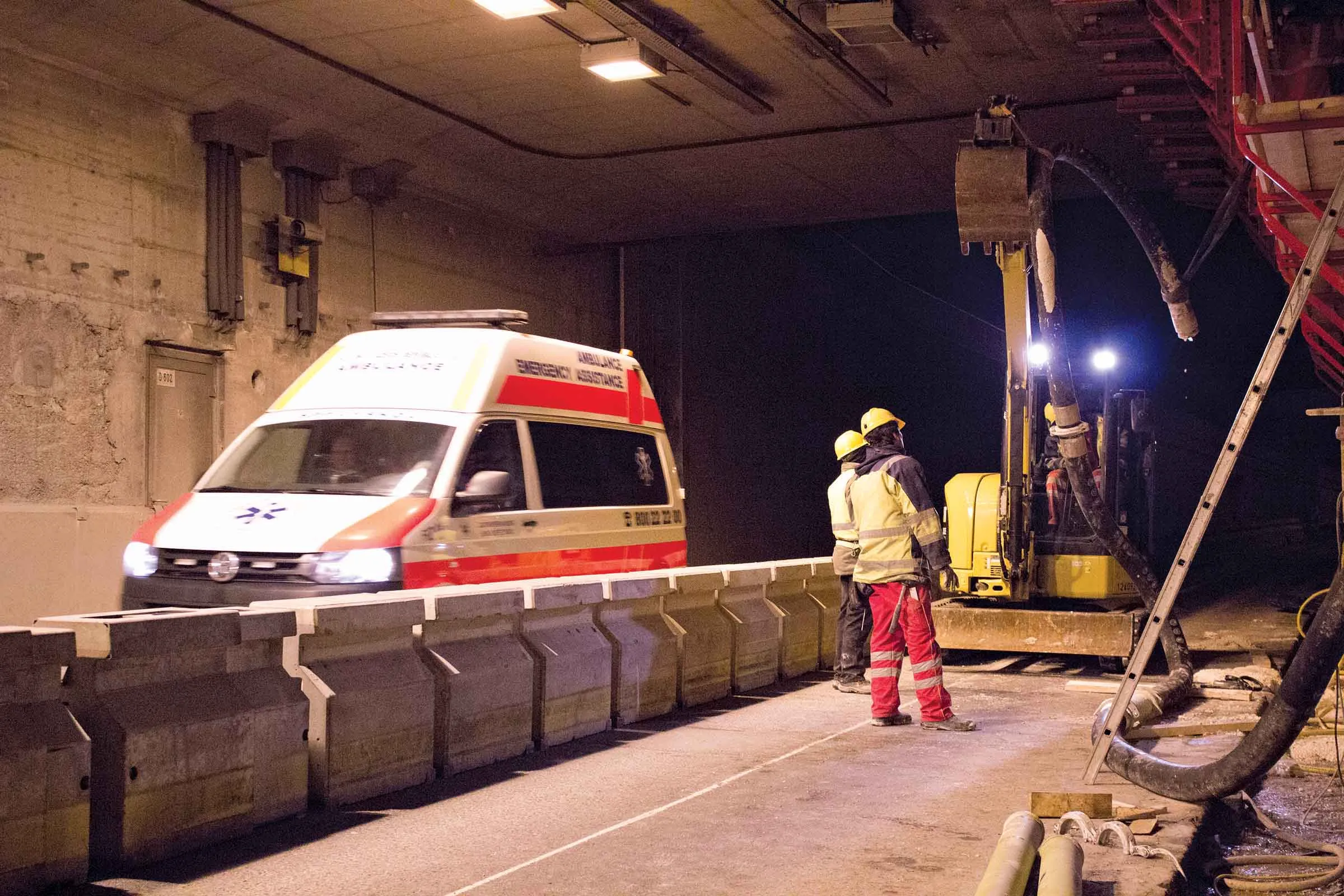
Work is underway in Vienna to rehabilitate two ageing tunnels and the asphalt highway sections that connect them – a major route into and out of the Austrian capital Vienna. Tunnels, like bridges, offer additional challenges for road works. Typically, there is very little additional space and a work zone must be created from active traffic lanes. The Vienna work zone runs for 3km in the southbound direction of the A23, and it includes structural repairs to the Hirschstetten Tunnel and the Stadlau Tunnel.
The Hirschstetten Tunnel at the north end of the work zone is two lanes per tunnel direction. The Stadlau Tunnel to the south provides three lanes in each direction.
“The A23 would suffer massive traffic queues if all lanes were not available for the peak traffic commute,” explained Paul Grant of Lindsay Transportation Solutions. The Road Zipper System includes the QuickChange Moveable Barrier – QMB - and the Road Zipper transfer machine. These are T-shaped concrete barriers that connect to form a continuous wall. A transfer machine (vehicle) is used to move the concrete barriers laterally across the pavement, creating a moveable “zipper lane.”
“To create a work zone where lanes could be quickly opened and closed while still providing positive barrier separation between workers and motorists, ASFiNAG, the Austrian publicly-owned corporation which plans, finances, builds, maintains and collects tolls for the Austrian autobahns, chose our Road Zipper System. The barrier wall sections were brought from the Netherlands and installed over a three-night period by Marjo Salari Transport. The Barrier Transfer Machine, or BTM, was imported by Alpina and is operated on a nightly basis by subcontractor Sitec.”
Each night, the barrier wall is moved out and the work zone is expanded to make room for larger, more efficient equipment than would be possible without the extra work zone space. Construction crews work efficiently knowing that they are protected from vehicle encroachments into the work zone by the concrete barrier.
The Austria tunnels project is the most recent European road works to use the Road Zipper System, which has been used successfully for road works in Italy, the Netherlands and the UK. In 2006, Lindsay Corporation acquired Barrier Systems, a company founded in 1984.


